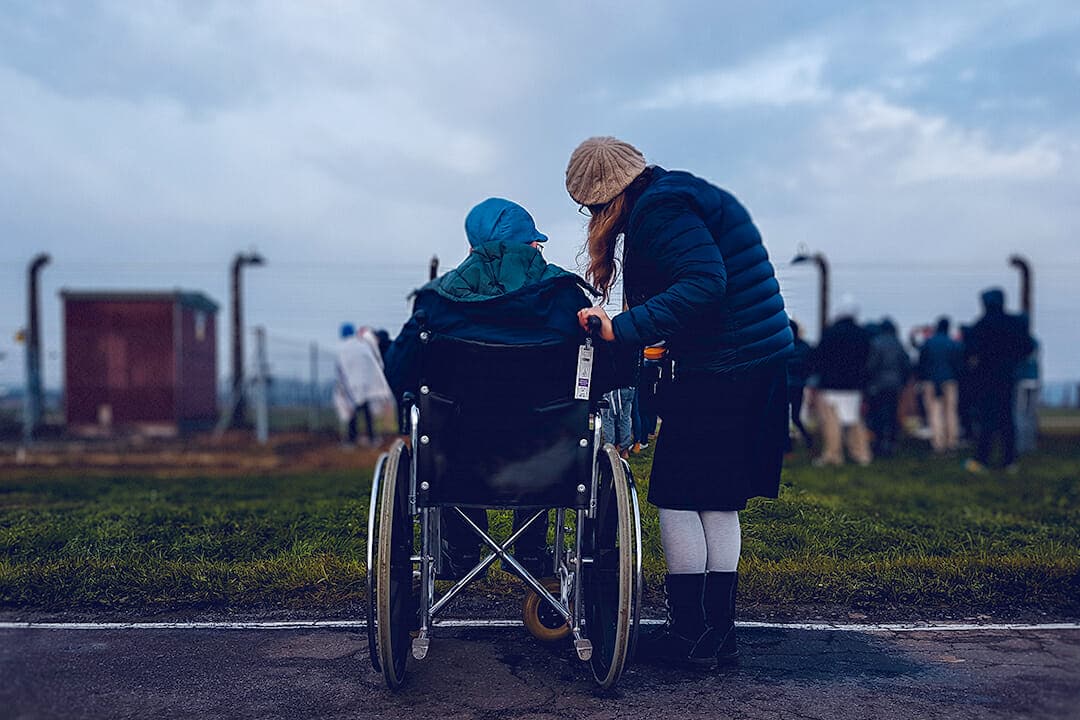
They are sometimes called “memorial candle” children. They are the second generation of Holocaust survivors; with the names of their ancestors, they are living reconstructions of the life before. They are resilient and hard-working, but also more prone to develop anxiety disorders like post-traumatic stress disorder. And so are their children.
Over two thirds of the Jewish population in Europe died in the Holocaust. After the war, the goal was to rebuild, but in the scarred countries they had called home, it wasn’t easy for the survivors to regain their lives. Nearly 5 million European Jews migrated to the U.S. They remarried, and a third of the women had children. Although Hitler failed to wipe out the whole Jewish race, the trauma he inflicted persists in the memories of survivors and the generations of children that followed.
It turns out a memory doesn’t have to be spoken to survive. Our genes can tell its story — without us ever being aware of it. In a study published in Nature Neuroscience, researchers at Yerkes National Primate Research Center told the tale of a mouse’s traumatic experience even before the conception of its offspring. They tagged this experience and followed its memory over three generations, observing how it influenced behavior, brain structure, and genetic activity.
Like a detective and his hound, Drs. Kerry Ressler and Brian Dias unlocked this mystery of inherited trauma by following a scent. They limited their search to the olfactory system because they knew the territory. They honed in on an odor — acetophenone — not because it smelled like cherry blossoms, but because it was easy to track. In the mouse brain, olfactory sensory neurons have receptors especially designed to detect acetophenone.
In the first generation of mice, the researchers established a heightened sensitivity to the odor through classical conditioning: pairing acetophenone with a mild shock to elicit a startle response. Enhanced startle to the odor after conditioning meant greater sensitivity. They bred these conditioned mice and then tested how a group of their offspring responded to the odor. Although they had never experienced it, the second generation showed a greater startle than controls when presented with acetophenone. The pups were not more anxious or fearful — just more sensitive.
Parental experience not only affected behavior but also neuroanatomy — of both generations. The scent-sensitive parents had more sensory neurons to detect and more space devoted to process acetophenone in the brain. So did their children. This inheritance lived on in a third generation. And it was being passed through reproduction — not social interactions: even pups conceived in vitro or raised by foster parents reflected their ancestors’ behavioral and structural changes.
Additionally, it was parental experience that “epigenetically” influenced the expression of the DNA of odor-sensitive mice. Meaning, the interaction of their environment with those mice’s genetic code had an influence on their genetic activity at the site of the particular odor through a chemical change called “DNA mythelation.”
Dias and Ressler showed that a parent’s body has clever ways of passing memories to its offspring, at least in the mouse. But there is still much more to explore. Although an animal study is not definitive evidence of this phenomenon of inherited trauma in human beings, biological mechanisms between mice and humans do exist that are similar. Of note is a study published in Biological Psychiatry that children of Holocaust survivors had epigenetic changes to a gene that was linked to their levels of cortisol, which is a hormone involved in the human stress response.

“The idea of a signal, an epigenetic finding that is in offspring of trauma survivors can mean a lot of things,” says Dr. Rachel Yehuda, director of the Traumatic Stress Studies Division at the Mount Sinai School of Medicine and a co-author of the study. “Now the question is — how do you really understand the mechanism of what is happening?”
So if there is a way to alter this sensitivity to inherited trauma — will we one day have the means to reverse it?
More From Brain World
- The Brain Under (Sexual) Assault
- Can Trauma Pass from One Generation to the Next?
- Healing Systematically: A Q&A With Dr. Glenn Saxe
- How The Body Keeps The Score: An Interview with Dr. Bessel van der Kolk
- Know Your Brain: How Trauma Affects Memory
- Recovery is a State of Mind: An Interview with Dr. Yehuda Ben-Yishay








